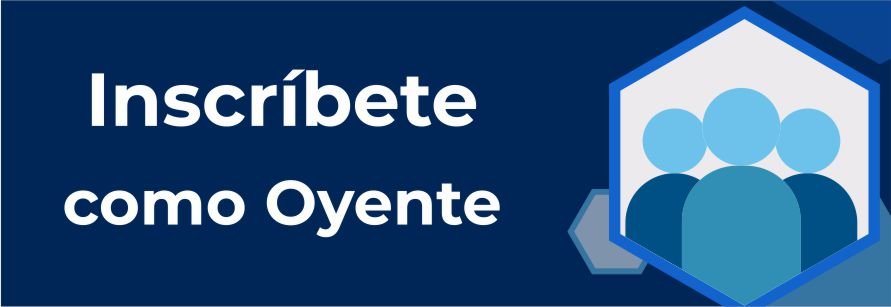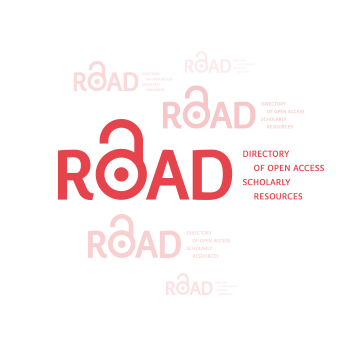Drama Techniques as Contributors to Third graders’ English Oral Skills Development
Resumen
The purpose of this action research study was to observe the impact of third grader’s English as a Foreign Language (EFL) oral skills through drama techniques to reinforce their fluency, motivation, confidence and pronunciation with audiovisual materials that integrate current cartoon series. To carry out this study, field notes and interviews were implemented to gather data and determine how drama techniques such as dialogue and improvisation with simulation and thought tracking contributed to the understanding and the improvement of third graders’ EFL oral skills. During the study, it was observed that learners could understand the foreign language through the gradual analysis of expressions and vocabulary meanings by connecting these concepts to their real backgrounds and topics of interest. Moreover, collaborative listening and repeating exercises, along with the kinesthetic activities helped learners to be closer to EFL meanings, achieve better pronunciation, fluency and motivation. The conclusions of the study include the fact that learners gained more participation through collective construction knowledge work related to their real contexts. Thus, we made some recommendations to encourage the educational community to apply the techniques mentioned in this study as a new ELT method and to integrate them within their curriculum to help learners to obtain better English oral skills results.
Descargas
Citas
Akwaree, S., & Kulsirisawad, P. (2018). The Effects of Drama Activities on Thai Secondary Students’ Speaking Fluency. Veridian E-Journal, Silpakorn University (Humanities, Social Sciences and arts), 11(4), 1207-1222.
Başaran, S. (2024). How to Use Drama Techniques in English Language Teaching: Guiding Principles for Teachers. RumeliDE Dil Ve Edebiyat Araştırmaları Dergisi,(39), 937-955. https://doi.org/10.29000/rumelide.1469466
Bsharat, T. R., & Barahmeh, M. Y. (2020). The influence of applying educational active drama in enhancing speaking skills in teaching-learning English language: A theoretical response. Technium Soc. Sci. J., 14, 10.
Bryman, A. (2012). Social Research Methods (4th ed.). Oxford University Press.
Cartoon Network. (2018, July 31). Baby Grizz’s sitcom: We bare bears: Cartoon network [video]. YouTube. https://youtu.be/v1w93Io_rso?si=Rp2eidV1dZFZmjPf
Castellanos Monroy, N. E. (2024). La Importancia de la Tradición Oral en el Fortalecimiento de Competencias Comunicativas. Ciencia Latina Revista Científica Multidisciplinar, 8(2), 7787-7802. https://doi.org/10.37811/cl_rcm.v8i2.11217
Chavarría Mendoza, L. A., Macias Sera, R., Kaicer Pinargote, Ángela M., Bazurto Alcívar, S. N., & Intriago Cobeña, M. C. (2024). Learning English through a Participatory and Collaborative Environment in Students from Rural Schools. Ciencia Latina Revista Científica Multidisciplinar, 8(4), 1534-1551. https://doi.org/10.37811/cl_rcm.v8i4.12393
Costamagna, A., & Manuale, M. (2005). Estrategias de enseñanza para la comprensión: un enfoque alternativo. Aula Universitaria. https://doi.org/10.14409/au.v1i6.1009
Council of Europe. Council for Cultural Co-operation. Education Committee. Modern Languages Division. (2001). Common European framework of reference for languages: Learning, teaching, assessment. Cambridge University Press.
Da Silva, C. F., de Cunha, P. R., Melo, P., & Themistocleos, M. (2010). Semantics take the SOA registry to the next level: an empirical study in a telecom company. In Americas Conference on Information Systems (AMCIS) (pp. 1-13). Association for Information Systems. https://hal.science/hal-01381622/file/18-C-ConfInt.pdf
Dharma Raja, B. W., & Sasikala, V. (2020). What is action research?. In Vasuhi, R., Thilagar Christadoss,
B. B., & Navaneethan, R. (Eds.), Action Research in Education: A call for action (pp. 1-41). Manonmaniam Sundaranar University.
Diaz Ballen, B. M., Quilaguy Rubiano, X. C., & Tovio Rodríguez, M. F. (2023). From the classroom to the English stage. [Trabajo de grado, Universidad El Bosque]. Repositorio Unbosque. https://hdl.handle.net/20.500.12495/10657
Fatmawati, M., Haura, R., & Supiani, S. (2020). Factors Affecting EFL Learners’ Confidence In Speaking English At The MEC English Course Banjarmasin. Proceeding: Islamic University of Kalimantan,1(1),102-108.
https://ojs.uniskabjm.ac.id/index.php/PIUOK/article/viewFile/3985/2605
Gamage, S. (2019). Cartoons as an Authentic Supplementary Teaching Tool in English as a Second Language Classrooms. Advances in Language and Literary Studies, 10(1), 107-116. https://doi.org/10.7575/aiac.alls.v.10n.1p.107
García Trujillo, C. (2019). Teatro: El Arte de Jugar [Proyecto de grado, Universidad El Bosque]. Repositorio Unbosque. https://hdl.handle.net/20.500.12495/3013
Gortaire Díaz, D., Aguilar Parra, J., Ley Leyva, N., Mora Herrera, E., & Díaz Zambrano, L. (2023). The Impact of Task-Based Language Teaching on English as a EFL Learners’ Speaking Proficiency and Motivation. Ciencia Latina Revista Científica Multidisciplinar, 7(3), 3796-3810. https://doi.org/10.37811/cl_rcm.v7i3.6443
Handelsman, M.M. (2022, February 21). Let’s consider the role of repetition in the classroom-again.
Psychology Today. https://www.psychologytoday.com/au/blog/the-ethical-professor/202202/let-s-consider-the-role-re petition-in-the-classroom-again
Kaur, M. (2021). Cartoon as an instructional strategy for language learning. Shodh Sarita an international bilingual peer reviewed refereed research journal, 8(29), 107-112. https://www.researchgate.net/publication/357152049
Korta, J. (2022). Improv games adapted to the bridge classroom. In A. Chevant-Aksoy & K. A. Corbin (Eds.), Culture and Content in French: Frameworks for Innovative
Krisdiana, A. (2021). Empowering Speaking Skills through Speaking Assessment in the Process of ELT in Think-E Course. Pioneer: Journal of Language and Literature, 13(2), 187-196. https://doi.org/10.36841/pioneer.v13i2.1230
Kwegyiriba, A., Mensah, R. O., & Ewusi, E. (2022). The Use of Audio-Visual Materials in Teaching and Learning Process in Effia Junior High Schools. Technium Social Sciences Journal, 31(1), 106–114. https://doi.org/10.47577/tssj.v31i1.6399
Monday, T. U. (2020). Impacts of Interview as Research Instrument of Data Collection in Social Sciences. Journal of Digital Art & Humanities, 1(1), 15-24. https://doi.org/10.33847/2712-8148.1.1_2
Muñoz Arboleda, W. F. (2019). Kinesthesia in speaking skill development (Master 's thesis, Universidad Técnica de Ambato. Dirección de Posgrado. Maestría en la Enseñanza del Idioma Inglés como Lengua Extranjera).
https://repositorio.uta.edu.ec:8443/bitstream/123456789/29274/1/Mu%c3%b1oz%20William.pdf
Larsen-Freeman, D., Driver, P., Gao, X., & Mercer, S. (2021). Learner Agency: Maximizing Learner Potential [PDF]. www.oup.com/elt/expert
Ruiz Calderón, L. N. (2021). Audiovisual tools as a strategy to strengthen the listening and speaking skills in the teaching-learning process of the English language with the 9th grade students at Institución Educativa Técnica Tomás Vásquez Rodríguez Paipa-Boyacá. An action Research. [Thesis, University of Pamplona]. Repository Unipamplona.
http://repositoriodspace.unipamplona.edu.co/jspui/bitstream/20.500.12744/7059/1/Ruiz_2021_TG.pdf
Shin, S. Y. S. S. Y., & Miller, S. M. S. (2022). A review of the participant observation method in journalism: Designing and reporting. Review of Communication Research, (10), 114-145. https://www.rcommunicationr.org/index.php/rcr/article/view/12/5
Uñate Cuevas, N., & Vega Romero, A. F. (2021). Prosody instruction: soft skills and effective communication development through drama techniques [Thesis, Universidad Pedagógica]. Repository Pedagógica. http://hdl.handle.net/20.500.12209/16653
WonderGrove Kids. (2019, January 15). R.E.S.P.E.C.T. S8 E4 [video]. YouTube. https://youtu.be/k-6ws8LZECU?si=eG4Mq_C02HdAh87h
Yahya, L. (2019). Improving Students Speaking Competence Through Guided Conversation - Chapter II Literature review [Doctoral dissertation,Universitas Mahammadiyah Purwokerto]. Repository UMP. https://repository.ump.ac.id/9812/3/Lutfhi%20Yahya%20Chapter%20II.pdf
Derechos de autor 2024 Juliana Betancourt Ovalle, María Fernanda Caicedo Díaz

Esta obra está bajo licencia internacional Creative Commons Reconocimiento 4.0.













.png)




















.png)
1.png)


